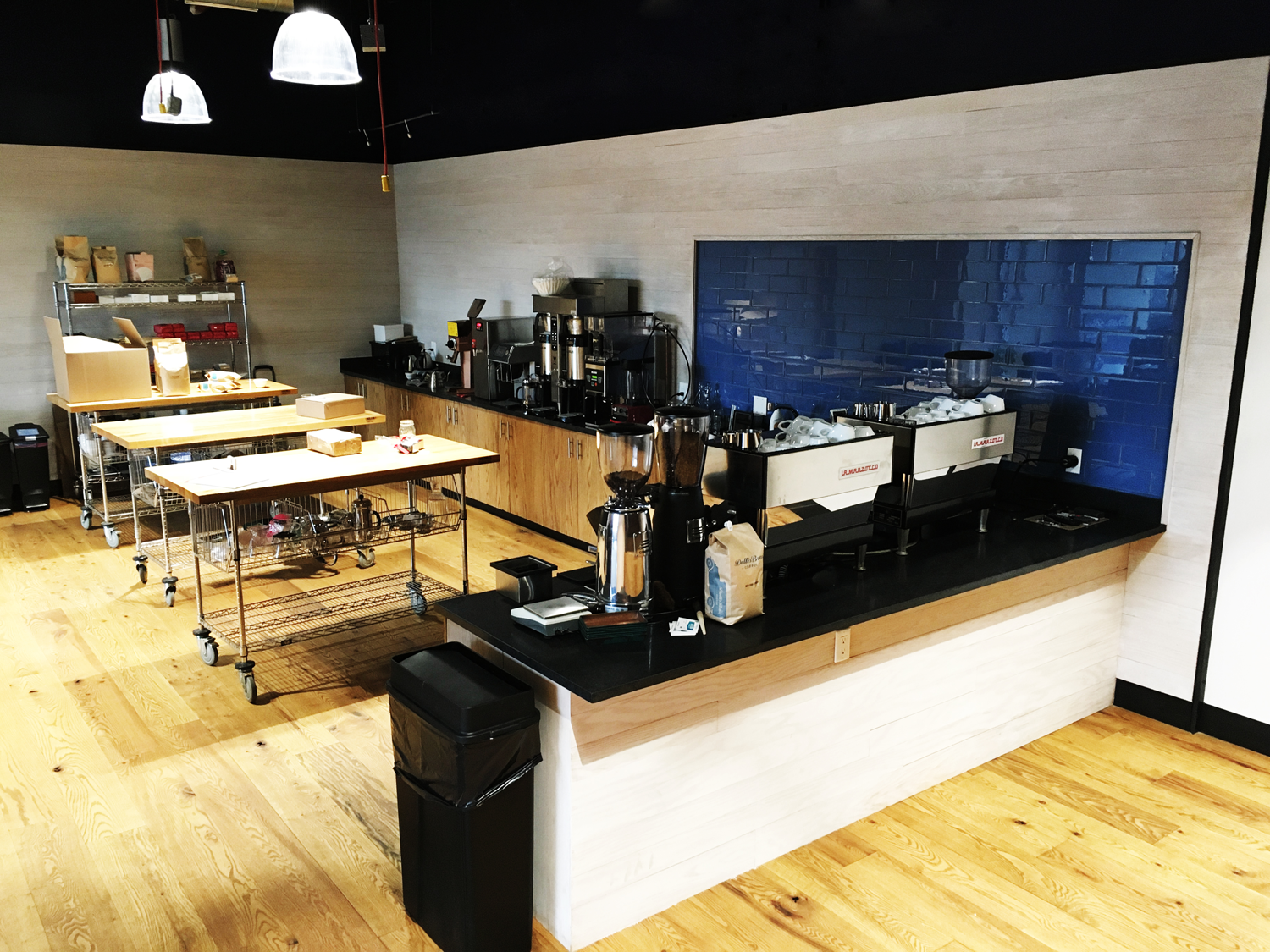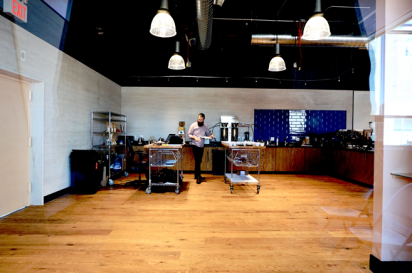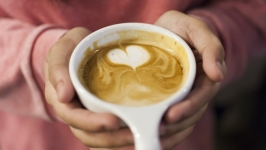Dallis Bros. Coffee: Love At First (or 200th) Slurp
Two minutes into my visit, I made a rookie mistake: I asked for my coffee in a to-go cup.
“I love coffee, but I’m a slow drinker,” I explained to Stephen Schulman, Senior Vice President of Sales and Head of Specialty Coffee at Dallis Bros. Coffee. There was a pause, and then, “Try it this way, first.”
He handed me a small saucer filled with an Ethiopian Ardi coffee, its punchy, fruity aroma mellowed out by a hint of chocolate. I take my coffee with a healthy dose of soymilk, so I was pleasantly surprised to find I could enjoy this cup black. Fragrantly sweet, no bitterness; it was one of the more enjoyable cups of coffee I’ve had to date.
You wouldn’t guess it by stepping into its state of the art headquarters in an industrial-hip stretch of Long Island City, but Dallis Bros. Coffee began with humble roots in Ozone Park, originally operating as a delivery service powered by horse-drawn wagons. The company helped pioneer the direct trade movement, preferring to establish relationships with farmers themselves to ensure a high caliber product, and supports the sustainable efforts of organizations like the International Women’s Coffee Alliance. Today, Dallis Bros. supplies quality coffee to some of New York’s most prominent specialty shops, gourmet markets, and even the Metropolitan Opera – albeit via more modern forms of transportation.
Soon to be celebrating its 105th birthday, the company prides itself on employing a staff of self-proclaimed coffee ‘geeks,’ hence Stephen’s endearing insistence that guests try coffee in its purest form – black – and in a proper cup first (he is known for keeping a spoon in his pocket, should a spontaneous coffee tasting opportunity arise). Stephen and CEO Jonathan Del Re are not only dedicated to sourcing excellent coffee, but also sharing their wealth of knowledge surrounding the art of coffee-making with others.
“Great coffee requires education,” says Stephen. “You can’t just press a button and have it work, you need to understand what you’re doing. To us, education and understanding coffee from seed to cup, raising it to a culinary level – it’s not just brown water, you have to understand it as a food, as a raw ingredient, the same way you respect wine and the flavors and the taste, you need to understand that of coffee.”
To that end, Dallis Bros. Coffee Lab and Training Center was established in 2015, encouraging budding coffee artists to hone their craft via hands-on instruction. Flooded with natural light, the inviting space is filled with enough high-end equipment to caffeinate a small country. The machines are used for training, a complimentary service offered to existing and potential customers. The space also hosts cuppings – the coffee equivalent of wine tastings – and acts as a testing ground for developing custom coffee blends for added complexity and quality control.
A consistently delicious product is the end goal, and cuppings are conducted regularly to evaluate whether or not coffees meet Dallis Bros.’ standards of excellence. I was lucky enough to participate in a cupping during my visit – though I’m not confident my opinions will have any sway over final decisions. While I only sampled three cups, Stephen and his fellow Q-graders can sometimes taste up to two hundred cups in one sitting. Each coffee is often sampled in five different cups to ensure an accurate representation. Factors pedestrian coffee drinkers would likely overlook – a drop of soap remaining in the cup after washing! – can affect taste, especially for a professional grader.
Similar to eating ramen in Japan, slurping is encouraged – essential, even – when it comes to cupping. Stephen explained that aspirating, rather than sipping, involves all senses, which is necessary. Just one sour bean can ruin an entire pot, and though my novice tongue was unable to detect many nuances, the Dallis Bros. team could instantly tell that one of the cups contained a defective bean. To be deemed acceptable, coffees must score above an 80 after being assessed on characteristics including flavor, fragrance, and acidity.
While I’ll likely never develop a palate sophisticated enough to rank with the Q-graders, the ‘geeks’ at Dallis Bros. gave me new respect for the skill sets required for understanding coffee’s complexities. I can’t say I’ll never use soymilk again, but I just might take a sip – or slurp – of the coffee, black, before deciding.
This story was updated March 7, 2018.
Dallis Bros. Coffee | @dallisnyc
International Women’s Coffee Alliance | @iwcaglobal
Metropolitan Opera | @metopera







